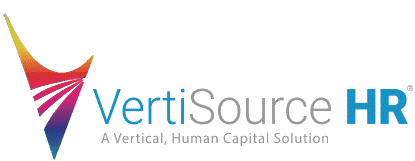Accounting and bookkeeping are two distinctly different jobs. Although there is some overlap between the two, there are certain things accountants can do that bookkeepers cannot. That is why growing businesses that have long relied on only a bookkeeper eventually end up outsourcing accounting to firms like VertiSource HR.
This is not to suggest that a company couldn’t hire an accounting staff or outsource to a firm that does nothing but accounting. But by outsourcing with VertiSource HR, companies get access to a range of HR and financial services all in one.
What a Bookkeeper Does
Small businesses that bring someone in to help with finances often hire bookkeepers. The easiest way to describe the bookkeeping position is to say that maintaining financial records is the main task. Bookkeepers record transactions. They reconcile invoices. They track all the money coming in and going out.
Your typical bookkeeper has an associate’s degree in accounting. Many have professional certifications as well, although certifications are not always required for entry level positions. And in fact, bookkeepers don’t even need to have degrees. They only need the knowledge and skill to keep track of daily finances.
What an Accountant Does
Accountants can also handle routine bookkeeping tasks, though doing so isn’t the norm. Accountants go above and beyond recording daily transactions to handle financial data analysis, prepare financial reports, offer business advice, and pay attention to how a company’s finances are affecting its performance. In many cases, accountants also prepare tax returns and reporting documents. They might even handle company audits and financial plans.
The greater responsibilities an accountant possesses requires more training. At minimum, an accountant has a bachelor’s degree in accounting. Accountants are also certified and accredited. In order to prepare tax returns and compliance reports, an accountant must be a Certified Public Accountant (CPA).
Company Growth and Accounting Needs
Every company has basic accounting needs. Even a sole proprietor who works a home-based business needs to deal with accounting tasks that include both recordkeeping and filing tax returns. What must be understood is that accounting needs grow as a company grows.
It is not unusual for owners of extremely small businesses to handle both bookkeeping and accounting as part of their normal responsibilities. As business picks up and the company grows, bringing in a bookkeeper is reasonable. The bookkeeper handles daily finances while the business owner continues to take responsibility for accounting tasks. But if a business is growing as it should, there usually comes a point when the accounting tasks outgrow the owner’s ability to handle them. Then what?
A business owner is tasked with either hiring an accountant, outsourcing to an accounting firm, or hooking up with a firm like VertiSource HR capable of providing a full range of accounting and HR services. Each option has its pros and cons.
More Than Just Outsourcing Accounting
Hooking up with an accounting firm is a perfectly legitimate option. So is hiring an on-staff accountant. But contracting with VertiSource HR gives you access to more than just accounting. We certainly offer outsourced accounting services for companies of all sizes. But we also offer services relating to benefits administration, HR, payroll, and even worker’s compensation claims and insurance.
Accounting is an inescapable part of business. Every company needs to manage it. The only question is how it’s done. If you would like to learn more about VertiSource HR’s solutions for accounting outsourcing, reach out to us. We would be happy to explain any of the services you believe could benefit your company. If outsourced accounting is one of them, we are ready to jump on board.


